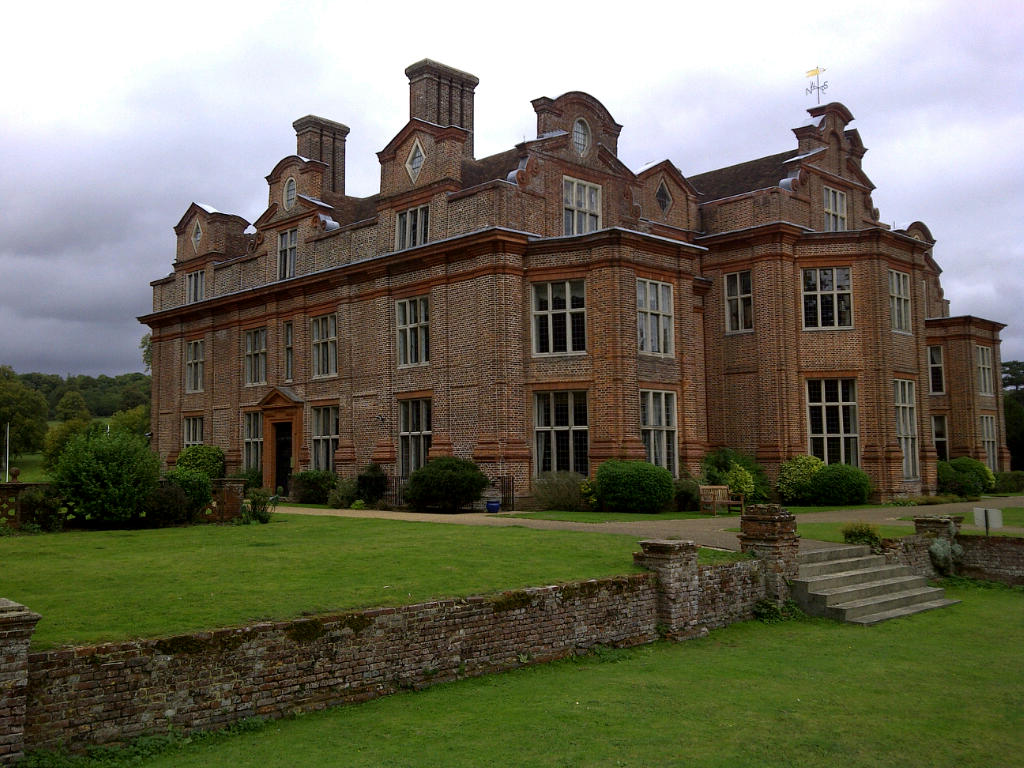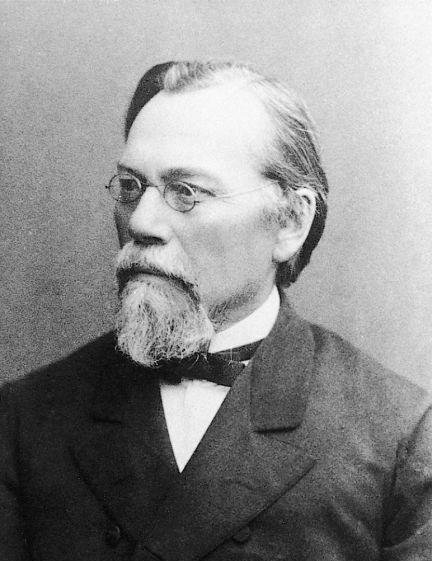|
Graham Oxenden
Graham Oxenden (23 January 1802 – 8 December 1826) was an English first-class cricketer who played for Cambridge University in one match, totalling 0 runs with a highest score of 0. Oxenden was born at Broome Park, Kent, the family seat of the Oxenden baronets. His father was Sir Henry Oxenden, 7th Baronet; one of his brothers, Charles Oxenden, was also a cricketer. Graham Oxenden was educated at Harrow School and Christ's College, Cambridge Christ's College is a Colleges of the University of Cambridge, constituent college of the University of Cambridge, England. The college includes the Master, the Fellows of the College, and about 450 undergraduate and 250 graduate students. The c .... He graduated in 1825 and died in the following year. References Bibliography * 1802 births 1826 deaths People educated at Harrow School Alumni of Christ's College, Cambridge English cricketers of 1787 to 1825 Cambridge University cricketers {{England-cricket-bio-1800s-st ... [...More Info...] [...Related Items...] OR: [Wikipedia] [Google] [Baidu] |
Wingham, Kent
Wingham is a village and civil parish in the Dover District of Kent, England. The village lies along the ancient coastal road, now the A257, from Richborough to London, and is close to Canterbury. History A settlement at Wingham has existed since the Stone Age but only became established as a village in Roman times. The Domesday Book reported that during Saxon times Wingham manor was in possession by the Archbishop of Canterbury. Wingham was the administrative centre of the hundred of Wingham which included Fleet. In 1286, Archbishop Peckham founded a college in Wingham; many other buildings in Wingham date back to this time, including the Grade II listed 'The Dog Inn' and (also listed) 'The Eight Bells'. St Mary the Virgin, the present Grade I listed church of Wingham, dates from the early 13th century with fabric dating from the Norman to Victorian eras. The East Kent Light Railway was built between 1911 and 1917 to serve the new coal mines which were being opened up in ... [...More Info...] [...Related Items...] OR: [Wikipedia] [Google] [Baidu] |
Cambridge University Cricket Club
Cambridge University Cricket Club, established in 1820, is the representative cricket club for students of the University of Cambridge. The club was recognised as holding first-class cricket, first-class status until 2020. The university played List A cricket in 1972 and 1974 only. It has not played top-level Twenty20 cricket. With some 1,200 members, home matches are played at Fenner's. The club has three men's teams (Blues, Crusaders and the Colleges XI) and one women's team (from the incorporation of Cambridge University Women's Cricket Club (CUWCC) in 2000) which altogether play nearly 100 days of cricket each season. The inaugural The University Match (cricket), University Match between Cambridge and Oxford University Cricket Club was played in 1827 and the match was the club's sole remaining first class fixture each season until 2020. The club has also operated as part of the Cambridge University Centre of Cricketing Excellence (Cambridge UCCE) which included List of Camb ... [...More Info...] [...Related Items...] OR: [Wikipedia] [Google] [Baidu] |
First-class Cricket
First-class cricket, along with List A cricket and Twenty20 cricket, is one of the highest-standard forms of cricket. A first-class match is of three or more days scheduled duration between two sides of eleven players each and is officially adjudged to be worthy of the status by virtue of the standard of the competing teams. Matches must allow for the teams to play two innings each, although in practice a team might play only one innings or none at all. The etymology of "first-class cricket" is unknown, but the term was used loosely before it acquired official status in 1895, following a meeting of leading English clubs. At a meeting of the International Cricket Council, Imperial Cricket Conference (ICC) in 1947, it was formally defined on a global basis. A significant omission of the ICC ruling was any attempt to define first-class cricket retrospectively. That has left historians and statisticians with the problem of how to categorise earlier matches, especially those played in ... [...More Info...] [...Related Items...] OR: [Wikipedia] [Google] [Baidu] |
Broome Park
Broome Park is a country house in Barham, within the City of Canterbury, Kent, England. It was built for Basil Dixwell between 1635 and 1638. In the early 20th century it was the country home of Lord Kitchener of Khartoum until his death at sea in 1916. Now a country club, Broome Park is a Grade I listed building. History Construction and early period The house was built between 1635 and 1638. Commissioned for Sir Basil Dixwell, 1st Baronet, who had been Member of Parliament for Hythe, it passed down through various generations of Dixwell baronets until it was inherited by Sir George Oxenden, 5th Baronet, who took on his mother's surname of Dixwell. It then passed down through various generations of Oxenden baronets to Sir Percy Dixwell Nowell Dixwell-Oxenden, 10th Baronet. Kitchener ownership In 1911 the estate was bought by Herbert Kitchener, 1st Earl Kitchener, Aged 61 and having been passed over for the position of Indian Viceroy Kitchener anticipated pending retirem ... [...More Info...] [...Related Items...] OR: [Wikipedia] [Google] [Baidu] |
Family Seat
A family seat, sometimes just called seat, is the principal residence of the landed gentry and aristocracy. The residence usually denotes the social, economic, political, or historic connection of the family within a given area. Some families took their dynasty name from their family seat ( Habsburg, Hohenzollern, and Windsor), or named their family seat after their own dynasty's name. The term ''family seat'' was first recorded in the 11th century Domesday Book where it was listed as the word '' caput''. The term continues to be used in the British Isles today. A clan seat refers to the seat of the chief of a Scottish clan A Scottish clan (from Scottish Gaelic , literally 'children', more broadly 'kindred') is a kinship group among the Scottish people. Clans give a sense of shared heritage and descent to members, and in modern times have an official structure r .... Examples * List of family seats of English nobility * List of family seats of Irish nobility * List of ... [...More Info...] [...Related Items...] OR: [Wikipedia] [Google] [Baidu] |
Charles Oxenden
Charles Oxenden (born 23 May 1800 at Deane, near Wingham Kent; died 17 March 1874 at Barham, Kent) was an English amateur cricketer who helped found the Cambridge University Cricket Club, and played first-class cricket for the club from 1820 to 1822. He made 4 known appearances in first-class cricket.CricketArchive Retrieved on 28 August 2009. Charles Oxenden was educated at , where he captained the school cricket team in 1818, and arranged the first regular cricket match. He was admitted to |
Harrow School
Harrow School () is a Public school (United Kingdom), public school (English boarding school for boys) in Harrow on the Hill, Greater London, England. The school was founded in 1572 by John Lyon (school founder), John Lyon, a local landowner and farmer, under a royal charter of Queen Elizabeth I. The school has an enrollment of about 820 boys, all of whom boarding school, board full-time, in twelve boarding houses. It was one of the seven public schools selected for reform in the Public Schools Act 1868. Harrow's uniform includes morning suits, Boater, straw boater hats, top hats and Walking stick, canes. Its list of distinguished alumni includes seven former Prime Minister of the United Kingdom, British prime ministers: George Hamilton-Gordon, 4th Earl of Aberdeen, Aberdeen, Spencer Perceval, Perceval, F. J. Robinson, 1st Viscount Goderich, Goderich, Robert Peel, Peel, Henry John Temple, 3rd Viscount Palmerston, Palmerston, Stanley Baldwin, Baldwin and Winston Churchill, Churc ... [...More Info...] [...Related Items...] OR: [Wikipedia] [Google] [Baidu] |
Christ's College, Cambridge
Christ's College is a Colleges of the University of Cambridge, constituent college of the University of Cambridge, England. The college includes the Master, the Fellows of the College, and about 450 undergraduate and 250 graduate students. The college was founded by William Byngham in 1437 as God's House. In 1505, the college was granted a new royal charter, was given a substantial endowment by Lady Margaret Beaufort, and changed its name to Christ's College, becoming the twelfth of the Cambridge colleges to be founded in its modern form. Alumni of the college include the poet John Milton, the naturalist Charles Darwin, as well as the Nobel Laureates Martin Evans, James Meade, Alexander R. Todd, Baron Todd, Alexander Todd and Duncan Haldane. The Master is Simon McDonald, Baron McDonald of Salford, Lord McDonald of Salford. History Christ's College was founded by William Byngham in 1437 as God's House, on land which was soon after sold to enable the enlargement of King's Colleg ... [...More Info...] [...Related Items...] OR: [Wikipedia] [Google] [Baidu] |
1802 Births
Events January–March * January 5 – Thomas Bruce, 7th Earl of Elgin, British ambassador to the Ottoman Empire, begins removal of the Elgin Marbles from the Parthenon in Athens, claiming they are at risk of destruction during the Ottoman Empire, Ottoman occupation of Greece; the first shipment departs Piraeus on board Elgin's ship, the ''Mentor'', "with many boxes of moulds and sculptures", including three marble torsos from the Parthenon. * January 15 – Canonsburg Academy (modern-day Washington & Jefferson College) is chartered by the Pennsylvania General Assembly. * January 29 – The French Saint-Domingue expedition (40,000 troops) led by General Charles Leclerc (general, born 1772), Charles Leclerc (Bonaparte's brother-in-law) lands in Saint-Domingue (modern Haiti) in an attempt to restore colonial rule following the Haitian Revolution in which Toussaint Louverture (a black former Slavery, slave) has proclaimed himself President for Life, Governor-General for Life ... [...More Info...] [...Related Items...] OR: [Wikipedia] [Google] [Baidu] |
1826 Deaths
Events January–March * January 15 – The French newspaper ''Le Figaro'' begins publication in Paris, initially as a satirical weekly. * January 17 – The John Ballantyne (publisher), Ballantyne printing business in Edinburgh (Scotland) crashes, ruining novelist Sir Walter Scott as a principal investor. He undertakes to repay his creditors from his writings. His publisher, Archibald Constable, also fails. * January 18 – In India, the Siege of Bharatpur (1825–1826), Siege of Bharatpur ends in British victory as Stapleton Cotton, 1st Viscount Combermere, Lord Combermere and Michael Childers defeat the Bharatpur State, princely state of Bharatpur, now part of the Indian state of Rajasthan. * January 30 – The Menai Suspension Bridge, built by engineer Thomas Telford as the first major suspension bridge in world history, is opened between the island of Anglesey and the mainland of Wales. * February 6 – James Fenimore Cooper's novel ''The Last of the Mohicans'' is ... [...More Info...] [...Related Items...] OR: [Wikipedia] [Google] [Baidu] |
People Educated At Harrow School
The term "the people" refers to the public or common mass of people of a polity. As such it is a concept of human rights law, international law as well as constitutional law, particularly used for claims of popular sovereignty. In contrast, a people is any plurality of persons considered as a whole. Used in politics and law, the term "a people" refers to the collective or community of an ethnic group or nation. Concepts Legal Chapter One, Article One of the Charter of the United Nations states that "peoples" have the right to self-determination. Though the mere status as peoples and the right to self-determination, as for example in the case of Indigenous peoples (''peoples'', as in all groups of indigenous people, not merely all indigenous persons as in ''indigenous people''), does not automatically provide for independent sovereignty and therefore secession. Indeed, judge Ivor Jennings identified the inherent problems in the right of "peoples" to self-determination, as i ... [...More Info...] [...Related Items...] OR: [Wikipedia] [Google] [Baidu] |


